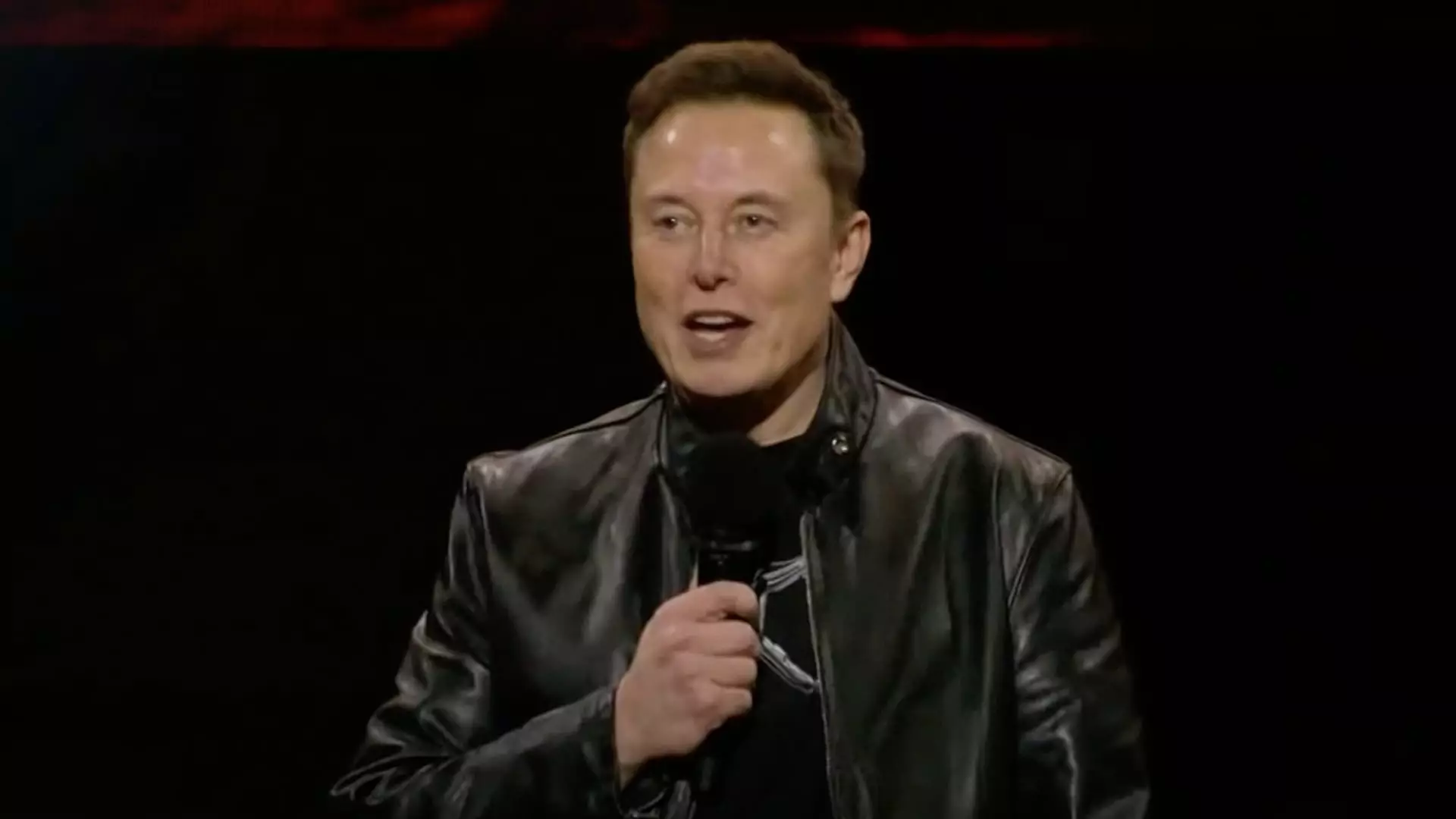In a noteworthy legal development, Elon Musk and his automobile manufacturing company, Tesla, alongside Warner Brothers Discovery, are entwined in a lawsuit over alleged copyright infringement surrounding the film “Blade Runner 2049.” Alcon Entertainment, the film’s producer, has initiated legal action claiming that the defendants misused images from the movie to promote Tesla’s futuristic robotaxi concept, the Cybercab, without obtaining proper authorization. This lawsuit, filed in the Los Angeles federal court, raises significant questions about intellectual property rights, especially in the age of rapidly evolving artificial intelligence technology.
The controversy hinges on a specific image that Musk and his associates allegedly sought to use during an October 10 promotional event at Warner Brothers’ studios in Burbank, California. According to the lawsuit, Alcon refused the request for permission, which was firm and categorical in its disapproval of any association between “Blade Runner 2049” and Musk’s ventures. Subsequently, the defendants allegedly employed an AI-generated image that parodied the original still from the film to bolster their promotional narrative.
As the lawsuit unfolds, it brings to light the intricate relationship between copyright law and artificial intelligence. The civil complaint accuses the defendants of “economic theft,” raising essential dilemmas about the use of AI to create derivative works. The case will likely examine whether an AI-generated image can infringe on existing copyrights—an emerging challenge in both legal and technological circles. This particular instance emphasizes the urgent need for clearer regulations governing the use of AI in creative industries, as current frameworks may not adequately address the nuances involved.
The suit’s claim of substantial financial damage implies that Alcon Entertainment is worried about the broader implications for its brand and potential partnerships. With ongoing discussions about a new television series set in the “Blade Runner” universe, Alcon is rightfully concerned about how Musk’s public persona and the action outlined in the lawsuit could affect relationships with prospective automotive industry partners.
Adding another layer to the legal proceedings, the lawsuit also underscores how Musk’s public behavior has become a liability for Tesla and its associations. Alcon’s complaint points out that the company wishes to distance itself from Musk’s controversial remarks and political affiliations, suggesting that potential business partners might think twice about aligning with Tesla due to Musk’s volatile public persona. It cites his past inflammatory remarks on social media platforms, including X, which he owns, along with his explicit support for certain political ideologies, creating a precarious situation for any brand seeking to partner with Tesla.
Such ramifications of associations with Musk could deter brands from working with Tesla despite its innovative technological advances and achievements. The lawsuit highlights a growing reality where corporate associations are scrutinized not just based on market value but also on the personal brands and public behaviors of the individuals leading those companies.
As the tech landscape continues to evolve, cases like this are poised to shape the relationship between the entertainment industry and technology firms. If Alcon’s claims are upheld, it could serve as a precedent, signaling to tech companies about the potential legal repercussions of using copyrighted materials through AI without proper licensing. The outcome may also provoke discussions regarding digital ethics, encouraging more responsible practices in the development of AI-generated content.
Furthermore, the tension between Musk’s ambitious visions—such as the long-promise of a robotaxi and the related marketing strategies—against the backdrop of legal hurdles illuminates the precarious balance of innovation versus compliance. Companies will need to find a way to navigate these challenges, ensuring that technological advancements do not control the narrative at the expense of legal parameters.
The legal battle between Tesla, Warner Brothers Discovery, and Alcon Entertainment is not just about images or promotional tactics; it reflects broader issues regarding copyright in the age of AI and the complex interplay between corporate branding and individual public personas. The outcome may significantly influence public relations strategies and the legal frameworks that guide the thriving intersections of technology, art, and commerce.

Leave a Reply